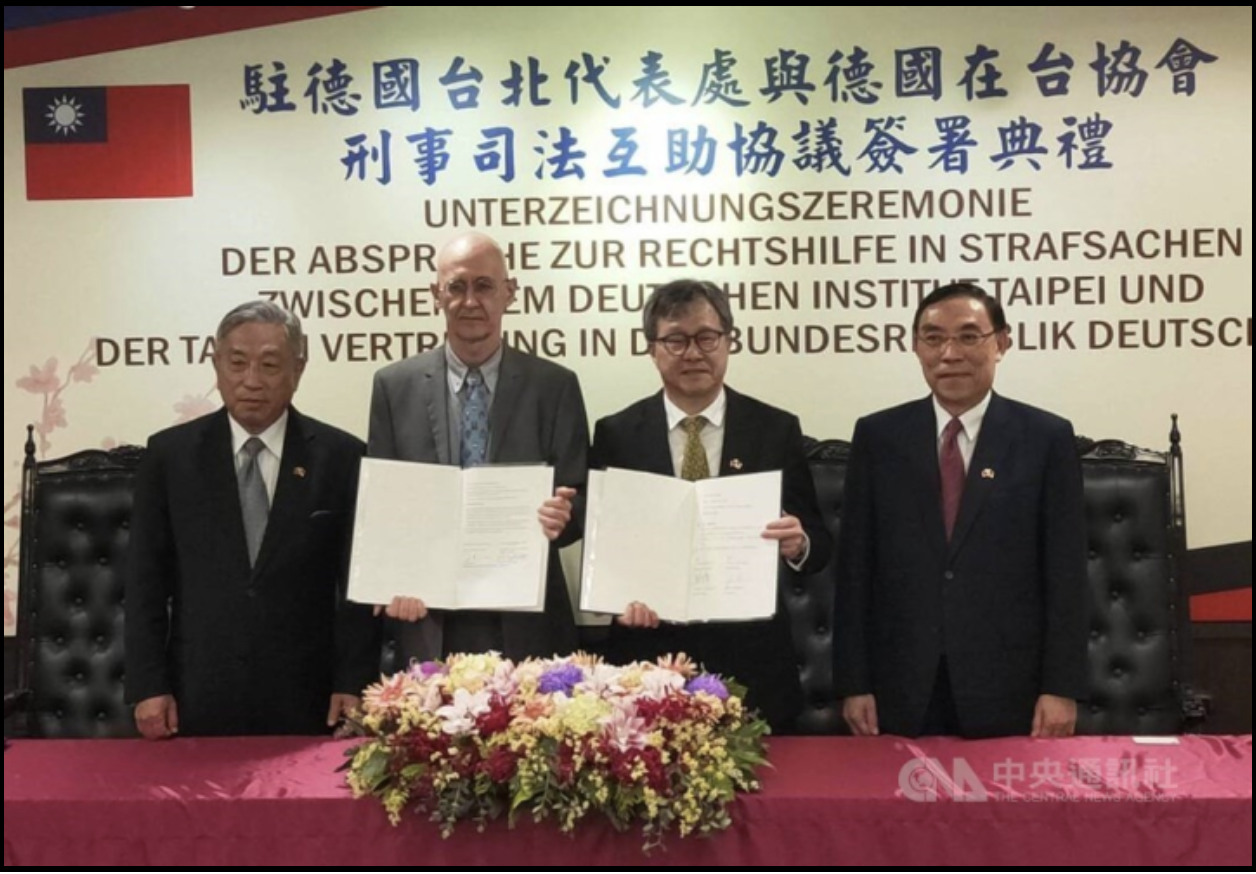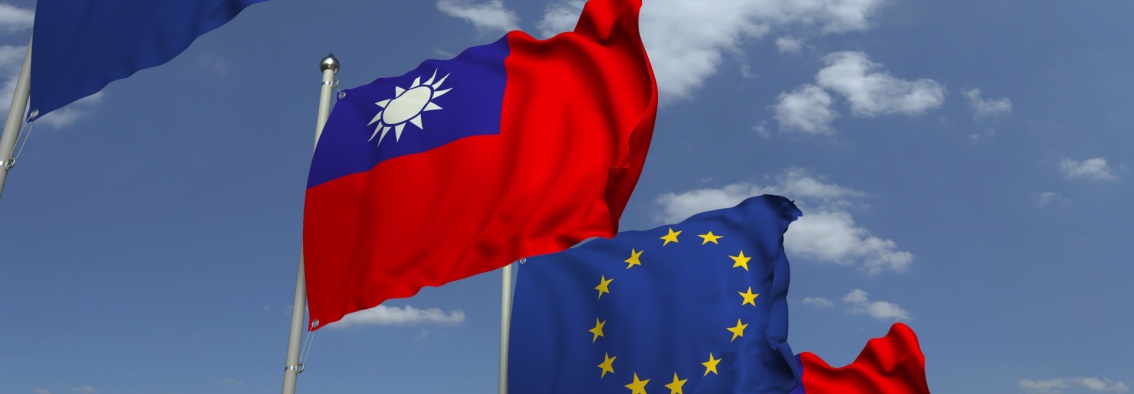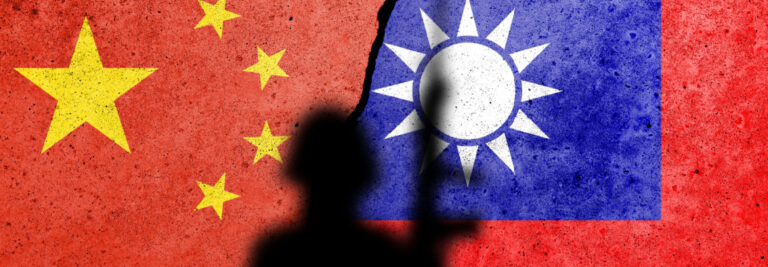Recent events indicate that Taiwan’s Lai Ching-te (賴清德) Administration is strengthening its diplomatic ties with Europe. One factor contributing to this shift is Taipei’s uncertainty and unfavorability towards the Trump Administration’s Taiwan policy. This has reduced the Taiwan government’s confidence in the United States as a partner and compelled the Lai Administration to focus on its European diplomacy–particularly in areas such as shared democratic values, defense cooperation, and security guarantees.
Taiwan’s Recent Diplomatic Engagements with Europe
Since President Trump took office in January 2025, Taiwan has conducted a series of diplomatic engagements with European leaders that hint at a policy of moving from reliance on the United States to partnership with Europe.
On May 8, 2025, the Taiwan government held a commemoration ceremony for Victory in Europe Day (VE Day) for the first time in Republic of China (ROC) history, marking the anniversary of the end of World War II in Europe. In the past, the ROC only commemorated the victory of the allies in the Asian theater of World War II, on September 3. This unprecedented ceremony indicates the Lai Administration’s desire to begin a new chapter of cooperation with Europe.
On June 4, 2025, Joseph Wu (吳釗燮), the Secretary General of Taiwan’s National Security Council, stated at the Taiwan Trilateral Forum in Berlin, Germany: “Europe is now waking up to the Indo-Pacific, not just diplomatically. We see this awakening in action.” Wu emphasized the increasing significance of Taiwan’s geopolitical position to Europe.
On July 22, 2025, President Lai Ching-te met with members of the European Parliament’s Special Committee on the European Democracy Shield at the presidential office in Taipei, and made the argument that Taiwan and the European Union not only have close economic and trade ties, but also share the values of democracy and freedom. During the meeting, President Lai expressed his hopes that Europe and Taiwan would continue to work together to safeguard democracy and freedom, to build more resilient societies.
On August 5, the Ministry of Foreign Affairs (MOFA, 外交部) and the Prospect Foundation (遠景基金會) convened the the Ketagalan Forum: 2025 Indo-Pacific Security Dialogue in Taipei. The keynote speeches were delivered by Boris Johnson, former Prime Minister of the United Kingdom, and François de Rugy, former President of the French National Assembly. The inclusion of two well-known European leaders is a symbol of Taiwan’s renewed focus on relations with the European Union and the United Kingdom.
On August 28, 2025, Shieh Jhy-wey (謝志偉) became the new representative to Belgium and the EU, following serving as the representative to Germany during the administrations of Chen Shui-bian (陳水扁) and Tsai Ing-wen (蔡英文). He is well-known as the “deep green warrior,” due to his stance on Taiwan’s independence and his past struggles with China for diplomatic space. Indeed, his term in Germany from 2016-2025 was marked by noteworthy developments in the Taiwan-Germany relationship. In September 2024, two German warships, the frigate Baden-Württemberg and the frigate Frankfurt am Main, were deployed to the Taiwan Strait. Meanwhile, Shieh attended numerous fora aimed at countering the influence of the Chinese Communist Party (CCP, 中國共產黨), organized by exiled Chinese dissidents in Europe. Compared with his predecessor (who was an economist), Shieh’s new appointment as EU ambassador indicates that the Taiwan government is comprehensively strengthening its diplomatic relations with Europe, aiming for firmer collaboration in areas such as security, defense, and democratic values.

Image: Taiwan’s former representative to Germany Shieh Jhy-Wey (second right) attends a press conference announcing the signing of a memorandum of understanding between Taiwan and Germany on mutual legal assistance. (Image source: Central News Agency)
Positive Reactions in Europe
The above events are clear signals that the Lai Administration is intentionally developing relations with Europe, and strengthening security cooperation with the EU and the UK. Concurrently, Taiwan’s efforts have been met by greater European support. On May 30, 2025, French President Emmanuel Macron warned that the outcome of the war in Ukraine could have consequences for Taiwan: “If we consider that Russia could be allowed to take a part of the territory of Ukraine without any restriction… how would you phrase what could happen in Taiwan?” Macron argued that inconsistent support for territorial integrity would undermine the credibility of democratic nations worldwide. The French president not only criticized Trump’s diminishing support for Ukraine, but also sought to defend Taiwan.
At the July 11 leader’s summit held in London, British Prime Minister Keir Starmer and French President Macron underscored the growing strategic importance of the Indo-Pacific, including Taiwan. The remarks by two of Europe’s most important leaders indicate a goodwill response to Taiwan’s request for help from Europe. On July 27, when asked by The Telegraph about a potential conflict with China over Taiwan, British Secretary of State for Defense John Healey said that “if we have to fight, as we have done in the past, Australia and the UK are nations that will fight together.” These statements reflect the UK’s resolve to be a contributor to security in the Indo-Pacific.
A Breakdown in US-Taiwan Cooperation Spurs Taipei’s Shift to Europe
Why did the Lai Administration start to shift greater focus towards diplomatic relations with Europe? I argue that the reason lies with the United States. When President Trump took office this year, his international policy significantly undermined the confidence and trust of the Taiwan government.
First, Trump abandoned previous traditions of values-based diplomacy in favor of transactional agreements, prioritizing economic profit over a shared interest in democratic ideals. Second, the Taiwan government was shocked by the Trump Administration’s initial weakening of support for Ukraine, and feared that Taiwan would suffer the same fate if a PRC invasion were to occur. Finally, President Trump’s tariffs on Taiwan, the canceled transit of President Lai Ching-te, and immense pressure on semiconductor factories to invest in the United States, have undermined the feeling of trust between the two nations and negatively impacted Taiwan’s interests.
Misalignment on Values
The Biden Administration prioritized the promotion of democracy in its foreign policy, framing the global context as a conflict between democracy and autocracy. As the leader of the free world, Biden argued that the United States must defend democracies, including Taiwan and Ukraine. Former Taiwan president Tsai Ing-wen also frequently echoed Biden’s emphasis on democracy, progressive values, and the rule of law in the face of China’s challenges.
In contrast, Trump in his second term has heavily relied on extreme realism and a “might makes right” foreign policy. Unlike Biden, Trump declined to make a declaration committing to Taiwan’s defense if China invades. Instead, Trump has focused only on economic gain in the US-Taiwan relationship, and has even threatened to charge protection fees for protecting the island.
Trump’s Inconsistent Ukraine Policy
Since Russia invaded Ukraine, the Taiwanese government has constantly promoted the narrative that Taiwan has the same geopolitical status and interconnected fate with Ukraine. Joseph Wu, the Foreign Minister of Taiwan under the Tsai Administration, emphasized the importance of “defending Taiwan by defending Ukraine…the fate of Taiwan, like that of Ukraine, will be a crucial test the world’s democracies must not fail.” However, US Secretary of State Marco Rubio has acknowledged that the United States faces a multipolar world, which may be perceived by Taipei as Washington’s concession of a Chinese sphere of influence in East Asia.
Meanwhile, Taiwan’s anxiety was compounded when the United States, in the words of Oxford Professor Margaret Macmillan, “sided against its own democratic allies and with Russia and other authoritarian states, such as North Korea and Belarus, in voting against a UN resolution that condemned Russia’s aggression.”
Trump’s Coercive Policies towards Taiwan
Finally, the Trump Administration has carried out several coercive measures towards Taiwan that undermine Taipei’s trust. The US State Department refused to allow President Lai to transit through New York on his way to visit diplomatic allies in South America—contrary to the custom that had been developed under previous US administrations.
Meanwhile, Trump has imposed a 20 percent reciprocal tariff on goods imported from Taiwan—which is higher than the 15 percent rate applied to Japan and South Korea. At the same time, Trump has repeatedly threatened to impose high tariffs on imported semiconductors, potentially as high as 100 percent, to push chip manufacturers to build factories in the United States. These actions have coincided with declining public trust in the United States in Taiwan, thus encouraging Taipei to seek other diplomatic and economic partners.
Europe: A Redoubt for Taiwan
Given the uncertainty and unreliability of Trump’s Taiwan policy, the Lai Administration has turned its attention to Europe. From World War II to the present, European countries have consistently emphasized the importance of democracy, multilateralism, humanitarianism, and international cooperation. Thus, Europe has a demonstrated interest in the democratic values shared by Taiwan. The Czech Republic and the three Baltic countries of Lative, Estonia, and Lithuania, which were once deeply oppressed by the communist Soviet Union, have been especially enthusiastic about strengthening diplomatic relations and cooperation on democratic values with Taiwan.
Moreover, Europe is a strong global partner that can help Taiwan address many of its challenges. The EU and the UK have already outlined Indo-Pacific strategies that aim to reinforce stability, security, and shared prosperity in the Indo-Pacific, including in Taiwan. Additionally, Europe plays an important role—second only to the United States—in the United Nations, NATO, and other international organizations. In the event of a Taiwan Strait conflict, European nations may become a leader among third-party countries advocating for intervention on behalf of Taiwan.
Conclusion
The distinguished political scientists Robert O. Keohane and Joseph S. Nye have asserted that, “The continuation of Trump’s current foreign policy would weaken the United States and accelerate the erosion of the international order that since World War II has served so many countries well—most of all, the United States.” Trump’s second-term Taiwan policies have affected the long-time feelings of goodwill and friendship between Taiwan and the United States. In this context, Taiwan is leaning into relations with Europe.
Therefore, in addition to strengthening relations with allies in Asia such as Japan and the Philippines, it is necessary and urgent for the Lai Administration to continue its focus on enhancing diplomatic relations with Europe. In doing so, Lai can render the region not only an economic and technological partner for Taiwan, but also a potent defense and security ally.
The main point: In the face of the Trump Administration’s foreign policy focus on economic gain over mutual benefit or shared democratic values, the Lai Administration has increasingly turned to Europe to find partners who share Taiwan’s democratic values, and who would safeguard Taiwan’s interests in the case of a cross-Strait conflict. In response, European leaders such as French President Emmanuel Macron have made positive, affirming declarations about the importance of Taiwan’s safety and security.





